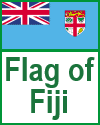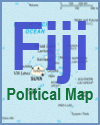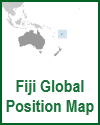Fiji, an archipelago in the South Pacific Ocean, consists of over 330 islands, of which about 110 are permanently inhabited. The two major islands, Viti Levu and Vanua Levu, account for the majority of the population and economic activities. Suva, located on Viti Levu, is the capital and the largest city, serving as the political and economic center of Fiji.
With a population of approximately 900,000 people, Fiji is known for its cultural diversity, vibrant traditions, and warm hospitality. The population is primarily composed of indigenous Fijians, Indo-Fijians, and a small percentage of other ethnic groups. This diverse cultural blend is reflected in Fiji's languages, cuisine, music, and festivals.
Fiji's economy is heavily reliant on tourism, agriculture, and fisheries. The country's stunning landscapes, including tropical rainforests, white sandy beaches, and crystal-clear waters, make it a popular destination for tourists. Key agricultural products include sugarcane, coconuts, and ginger. The tourism sector significantly contributes to Fiji's GDP, attracting visitors with activities such as scuba diving, snorkeling, and exploring its beautiful coral reefs and marine life.
Despite facing challenges such as political instability and vulnerability to natural disasters, Fiji continues to thrive by promoting sustainable development and preserving its rich cultural heritage, ensuring a balance between economic growth and environmental conservation.
|












